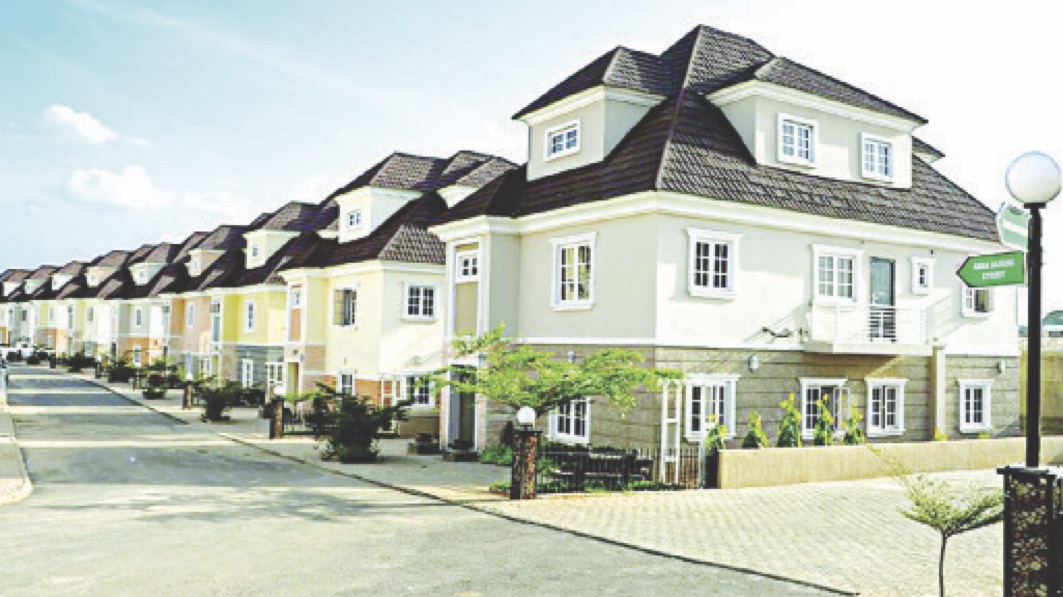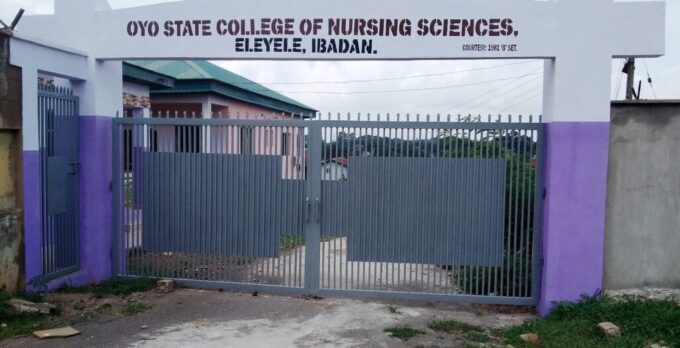By Maduka Nweke
Nigeria’s real estate sector is on a trajectory to hit a market valuation of $2.61 trillion by 2025.
The anticipated growth reflects the immense potential embedded in the country’s housing and commercial property landscape.
However, despite this promising outlook, the sector is still grappling with numerous structural, economic, and regulatory challenges that threaten to stall its momentum.
Experts say the sector’s resilience lies in its capacity to drive economic growth, absorb investments, and generate employment. Yet, persistent issues, ranging from high construction costs and limited mortgage access to bureaucratic bottlenecks and infrastructure deficits, are creating formidable barriers to progress.
According to Mr. Ewenla Mustapha, a professional surveyor, real estate holds a pivotal role in national development.
“In Nigeria, the demand for housing and commercial property outpaces supply, creating opportunities for developers, investors, agents, policymakers, and other stakeholders,” he said. “Commercial real estate involves properties for business use. Benefits include long-term leases, stable cash flow, and higher returns.”
Yet, Mr. Mustapha also points to one of the sector’s long-standing impediments—land ownership and title documentation. The 1978 Land Use Act vests control of land in the hands of state governors, leading to excessive bureaucracy and delays. “Many lands have unclear titles or are subject to disputes, which makes transactions risky and tiring,” he said.
The sluggishness of Nigeria’s legal system further compounds these issues, deterring both local and foreign investors who seek a transparent and efficient legal framework to protect their investments.
Security concerns such as terrorism, kidnapping, and communal clashes also diminish real estate values in vulnerable regions, while the few areas considered secure face overwhelming demand, further limiting development prospects.
Infrastructure deficit retards growth
Nigeria’s infrastructure remains a major hindrance to real estate growth. Inadequate roads, poor electricity supply, lack of water, and inefficient sewage systems have severely impacted development, especially in rural and peri-urban communities.
“Many areas suffer from poor infrastructure, which raises the cost of development and reduces the appeal of potential investments,” Mustapha noted.
Growth on the horizon despite challenges
Despite these challenges, the Nigerian real estate market is showing strong signs of expansion. Residential real estate, in particular, holds the largest share of the projected $2.61 trillion market value by 2025.
The Federal Government is also capitalising on this opportunity. Recently, the Minister of Housing and Urban Development, Arc. Ahmed Dangiwa, revealed that the government aims to generate at least N300 billion from the sale of affordable housing units within two years of their development. But this announcement has raised eyebrows.
“People are asking: if the government is prioritising profits over shelter, where will relief come from?” an industry observer queried.
Nevertheless, real estate remains a preferred investment class in Nigeria, offering relative stability, protection against inflation, and capital appreciation.
According to African Investor (2024), residential real estate involves domestic housing and “features lower capital requirements, high tenant availability, and annual property appreciation of 5–8%.”
The sector’s contribution to GDP rose from 5.2% in 2023 to 5.6% in 2024, further underscoring its growing relevance in the Nigerian economy.
Bridging the housing deficit
Nigeria faces an acute housing shortage, with a deficit estimated at over 22 million units. This underscores the urgent need for mass housing initiatives.
During an oversight visit by the Senate Committee on Lands, Housing, and Urban Development, Minister Dangiwa said the ministry, with an allocation of N500 billion, could recoup N300 billion through property sales.
He also provided updates on the Renewed Hope Cities and Estates Initiative, revealing that developments are underway across 13 sites, supported by the 2023 supplementary budget.
“This initiative, designed to reduce Nigeria’s housing deficit, is being executed through public-private partnerships,” Dangiwa said. “Our engagement with the Senate Committee included discussions on our collaborations with reputable developers, particularly the Karsana site, where 3,112 housing units are under construction. We also provided insights into the Slum Upgrade and Urban Renewal Program, which covers 28 locations nationwide.”
Similarly, Lagos State Governor, Mr. Babajide Sanwo-Olu, has reiterated the urgent need for affordable housing, especially for low-income Nigerians. Speaking during the signing of a memorandum of understanding between the state government and Access Bank for a housing scheme in Ikorodu, he said:
“The global housing challenge, especially the socioeconomic task of providing affordable housing for millions of low-income individuals, is real and pressing. With the way things are going, about three million people will be affected by the housing provision.”
Citing United Nations projections that over 3 billion people may face inadequate housing by 2030, Sanwo-Olu added, “This is not just a statistic but a call for action. Shortages of land, lending, labour, and materials are exacerbating this crisis, making it increasingly difficult for individuals and families to afford low-income homes. Addressing this requires bold interventions, innovative solutions, and collaborative efforts.”
Market trends and investor sentiments
Lagos, Abuja, and Port Harcourt remain hotspots for property investment, with rising demand driving up prices. However, global events—including supply chain disruptions—continue to affect construction timelines and costs.
Mrs. Monica Efe Osaghae, Managing Director of Efe Enterprise Limited, noted that misconceptions about real estate professionals persist.
“People see those in real estate as money mongers, but there’s no business that doesn’t spin money,” she said. “It depends on how you pursue the business. If you develop your contacts and use your capital wisely, real estate can be very rewarding. But if you borrow money to develop an estate and misuse it entertaining visitors instead of building, you will run yourself into trouble.”
She emphasised that businesspeople, including governments, must borrow for development, not consumption. “If you borrow for feeding, you’re courting trouble. When it’s time to repay and you can’t, your collateral is gone,” she said.
Supply chain issues, particularly around construction materials, have also driven up project costs and delayed delivery timelines, particularly for industrial real estate.
Technology and Innovation in real estate
Technology is playing a transformative role in the sector, enabling transparency, efficiency, and better client experiences. Innovations like virtual tours, digital documentation, AI-powered tools, and online marketplaces are reshaping the way real estate is conducted in Nigeria.
“Staying updated with new technologies is essential for real estate professionals who want to remain compliant and competitive,” Osaghae added.
Rising construction costs and market volatility
Construction costs in Nigeria remain among the highest in the region, due to inflation, import tariffs, and low local production capacity.
Dr. Ambrose Okikelomo, a real estate consultant, warned that while the sector is lucrative, it comes with risks.
“Any sector that is milky also has stings,” he said. “That’s why some people leave while others troop in. The real estate sector has big challenges and restrictions that scare off those who rush in unprepared.”
According to him, market volatility, including inflation, currency devaluation, and interest rate fluctuations, significantly affect property values and investor confidence.
Mortgage access constraint
Access to affordable financing remains a major roadblock. High interest rates, stringent loan conditions, and a lack of specialised financing products are making it difficult for homebuyers and developers to access capital.
Rising inflation has further eroded the purchasing power of low-income earners, making home ownership a distant dream for many.
“In Lagos State, which has the highest level of real estate development in Nigeria, any rule or practice becomes a benchmark,” Dr. Okikelomo explained. “A significant increase in interest rates can negatively impact demand, slow price growth, and lead to a surge in rental demand.”
Urbanization: Boon and Burden
Rapid urbanisation and population growth are both fueling demand and stretching infrastructure to the limit.
Mr. Joash Enendu, a real estate developer, stressed the importance of sustainable planning.
“While urbanisation drives real estate demand, it must be managed effectively to ensure that infrastructure keeps pace. Lagos, being Nigeria’s urban epicentre, faces a housing demand that outpaces supply by wide margins.”
He added, “The resulting deficit poses a critical challenge—one that must be addressed head-on.”
Conclusion
Nigeria’s real estate sector holds enormous potential for investors, developers, and the wider economy. But unlocking this potential will require deliberate efforts to fix the systemic problems holding the industry back—ranging from legal and regulatory reforms to infrastructure upgrades, mortgage accessibility, and improved governance. With the right interventions, the sector could not only meet its $2.61 trillion market projection but also become a cornerstone of sustainable development in Nigeria.


















Leave a comment